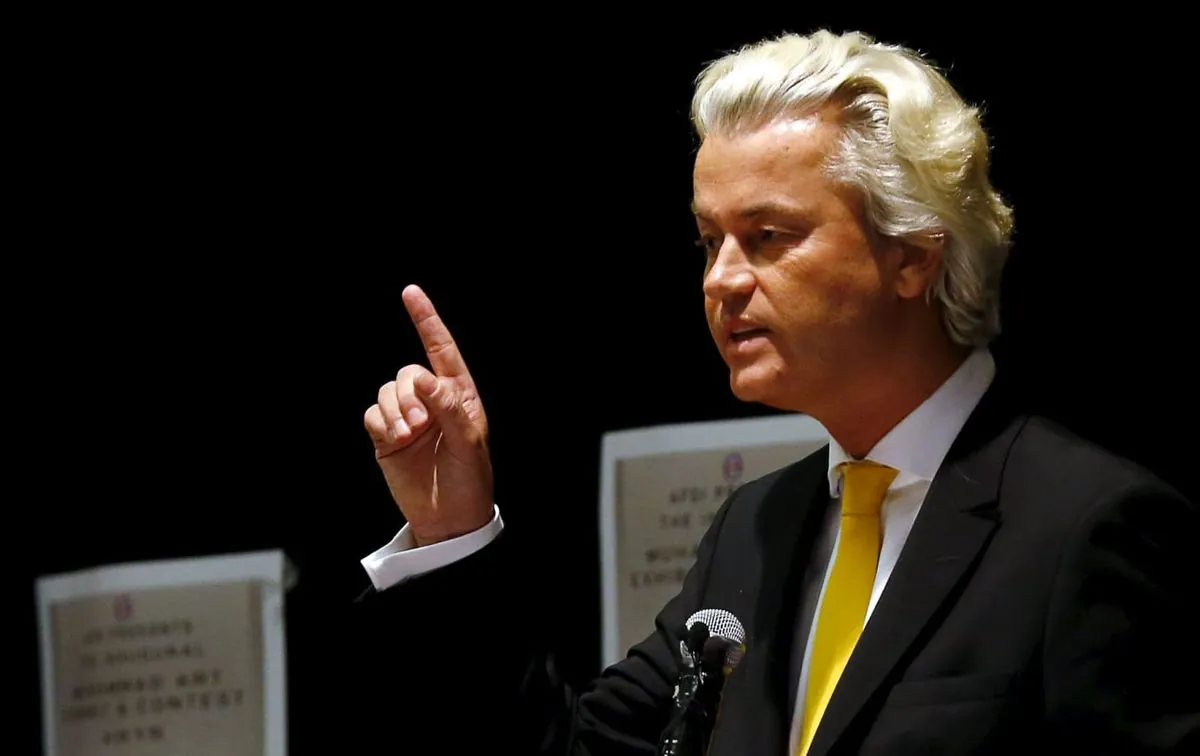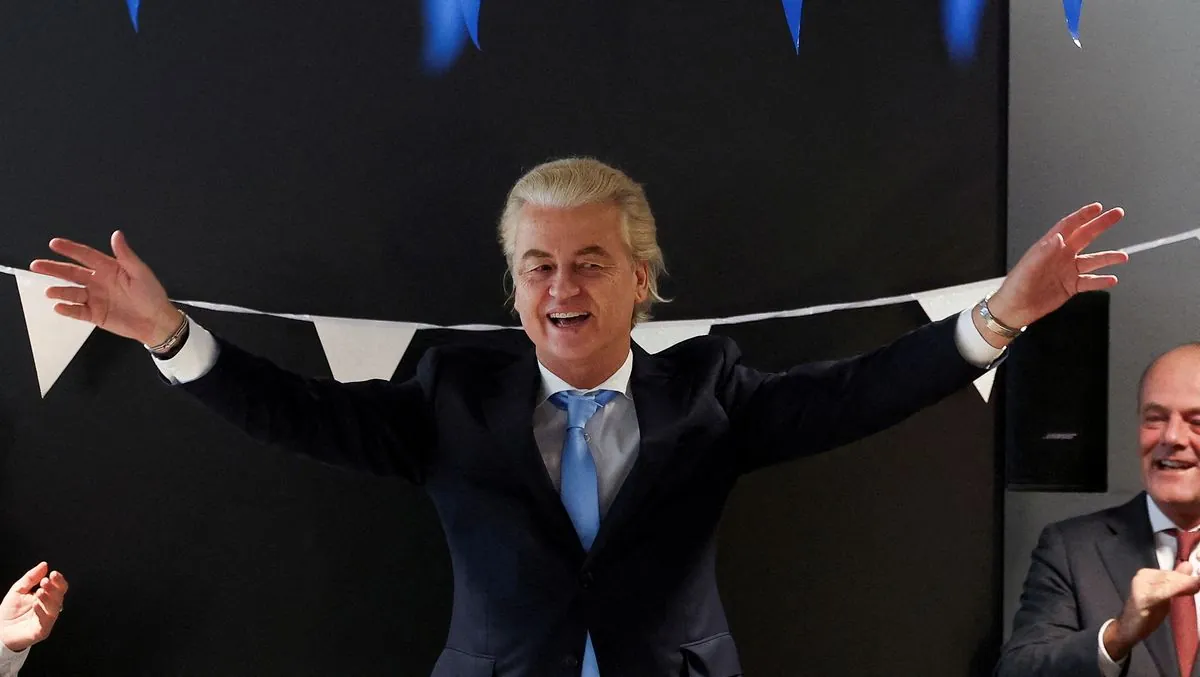Dutch Prosecutors Seek Lengthy Sentences for Threats Against Wilders
Dutch authorities pursue prison terms for two Pakistani men accused of inciting violence against far-right leader Geert Wilders. Extradition challenges complicate the case, set for verdict on September 9.

Dutch prosecutors are pursuing substantial prison sentences for two Pakistani individuals accused of publicly encouraging violence against Geert Wilders, a prominent far-right politician known for his anti-Muslim stance. The prosecutors are seeking terms of up to 14 years for the defendants, who were not present at the Amsterdam court hearing on September 2, 2024.
The case highlights the ongoing security concerns surrounding Wilders, who has been living under strict protection for two decades due to persistent threats from Islamist extremists. Wilders, founder of the Party for Freedom (PVV) in 2006, has been a controversial figure in Dutch politics since joining the House of Representatives in 1998.
The legal proceedings face significant hurdles due to the absence of an extradition agreement between the Netherlands and Pakistan. This diplomatic gap makes it improbable that the accused will serve any potential sentences imposed by Dutch courts. The Dutch government has expressed frustration over Pakistan's lack of response to repeated extradition requests, vowing to continue pressing the issue with Islamabad.

According to court statements from February, the suspects are accused of publicly calling for Wilders' assassination and promising spiritual rewards for carrying out the act. The verdict for this case is expected to be delivered on September 9, 2024, with the defendants tried in absentia.
This case is not isolated. In September 2023, a Dutch court sentenced a former Pakistani cricketer to 12 years in prison, also in absentia, for similar charges related to inciting violence against Wilders.
Wilders' political career has been marked by controversy, particularly his stance on Islam and immigration. He has advocated for banning the Quran, closing mosques, and implementing stricter immigration policies. These views have led to his ban from several countries and numerous legal battles.
Despite the controversies, Wilders' party has gained significant support in recent years, reflecting growing anti-establishment sentiment in the Netherlands. In a notable shift, his party joined the government for the first time following a clear election victory, marking a new chapter in Dutch politics.
The ongoing legal cases and security measures surrounding Wilders underscore the complex interplay between freedom of speech, political extremism, and international diplomacy in the modern European context.
"Pakistan has never responded to repeated calls for the extradition of the suspects. We will continue to press Islamabad on this matter."
This case raises important questions about the effectiveness of international cooperation in addressing threats to political figures and the challenges of prosecuting individuals across borders in an increasingly interconnected world.


































